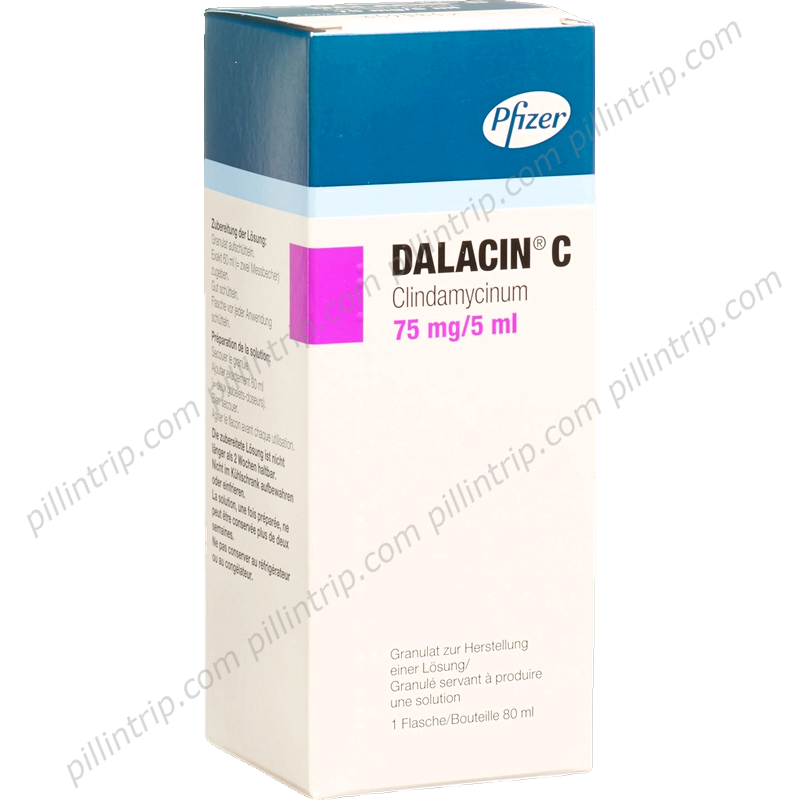Dalacin
Quick links to important sections
Medically reviewed
Last updated on 12/22/2025
This page provides general, reference-level information compiled from official medical sources. It is not a substitute for professional medical advice, diagnosis, or treatment. For decisions about your health, please consult a qualified healthcare professional.
Overview of Dalacin
What side effects are possible with Dalacin?
Overdose and Emergency Response
Therapeutic Uses of Dalacin
Eligibility and Restrictions for Use
What should I know about interactions with other medicines?
Mechanism of Action
Dosage and Administration Information
Recent Clinical Evidence
Frequently Asked Questions (FAQ)
How should Dalacin be stored and disposed of?
Attention! Always consult to a doctor or pharmacist before using pills or medicines.
Equivalent of Dalacin found in:
 Portugal
Portugal Mexico
Mexico Colombia
Colombia Cyprus
Cyprus India
India Lebanon
Lebanon Bosnia & Herzegowina
Bosnia & Herzegowina USA
USA Argentina
Argentina Switzerland
Switzerland Indonesia
Indonesia South Korea
South Korea Turkey
Turkey Malasia
Malasia China
China Brasil
Brasil Ukraine
Ukraine Vietnam
Vietnam Phillipines
Phillipines United Kingdom
United Kingdom Costa Rica
Costa Rica Tunisia
Tunisia Greece
Greece Macedonia
Macedonia Hong Kong
Hong Kong Serbia
Serbia Kenya
Kenya Germany
Germany Belize
Belize Egypt
Egypt Italy
Italy Taiwan
Taiwan France
France Ecuador
Ecuador Netherlands
Netherlands Australia
Australia Chile
Chile Trinidad & Tobago
Trinidad & Tobago Bahrain
Bahrain Peru
Peru New Zealand
New Zealand Slovakia
Slovakia Myanmar
Myanmar Singapore
Singapore Pakistan
Pakistan Romania
Romania Slovenia
Slovenia
